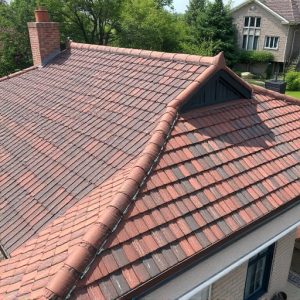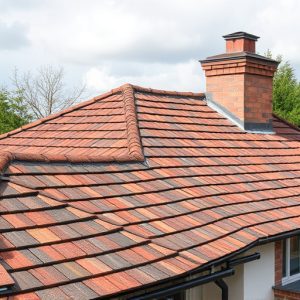Maximizing Home Protection: A Guide to Roofing Service Warranties
When choosing a roofing investment, it's essential for homeowners to understand both manufactur…….

When choosing a roofing investment, it's essential for homeowners to understand both manufacturer and contractor warranties to ensure long-term satisfaction with their roofing system. Manufacturer warranties cover defects in roofing materials like shingles and underlayment, with terms that specify coverage duration and claim conditions. These warranties vary by material, with asphalt shingles typically offering a warranty reflective of their expected lifespan. Contractor workmanship warranties ensure the quality of the installation for a set period. Homeowners should obtain detailed information about these warranties from both suppliers and contractors before any work begins, paying close attention to whether the warranty is full or limited, and clarifying coverage particulars and transferability if selling the home. It's crucial to maintain the roof with regular inspections and documentation of all maintenance to avoid invalidating the warranty. Selecting a reliable roofing contractor who provides robust warranties is key to maintaining the integrity and functionality of your roof over time, offering peace of mind regarding both material quality and installation precision. Roofing warranties are critical for safeguarding your investment, with both manufacturer and contractor warranties playing significant roles in protecting against material defects and subpar workmanship. Understanding these warranties thoroughly will help you make informed decisions and ensure the longevity of your roofing system.
When considering roofing services, understanding the warranty that accompanies them is crucial for homeowners. This article delves into the intricacies of roofing warranties, providing clarity and guidance to ensure satisfaction with your investment. We’ll explore various types of warranties, their coverage, and the best practices for maximizing their benefits. Whether you’re facing a repair, replacement, or new installation, our comprehensive guide on roofing warranties is designed to safeguard your home and wallet.
- Understanding Roofing Warranties: A Comprehensive Guide for Homeowners
- Navigating the Types of Roofing Service Warranties and What They Cover
- Maximizing Satisfaction with Your Roofing Warranty: Best Practices and Tips
Understanding Roofing Warranties: A Comprehensive Guide for Homeowners

When investing in roofing services, understanding the intricacies of warranty coverage is crucial for homeowners to ensure long-term satisfaction with their investment. A well-crafted roofing warranty can offer peace of mind by safeguarding against potential defects or poor workmanship. It’s important to differentiate between two types of warranties: material and workmanship. Material warranties, typically provided by manufacturers, cover defects in the materials used for your roof, such as shingles or underlayment. These warranties often have specific terms regarding duration and conditions that must be met to make a claim. Workmanship warranties, on the other hand, are offered by the contractor and guarantee their installation work for a set period. Homeowners should always request detailed warranty information from both the material supplier and the contractor before the project begins. This ensures clarity on what is covered and the process for making a claim should it become necessary. Additionally, understanding the distinction between a “full” and a “limited” warranty is essential; a full warranty covers all issues related to the product or installation, whereas a limited warranty may have restrictions on certain aspects. For instance, a limited warranty might cover only manufacturer defects and not normal wear and tear. Homeowners should carefully review the terms and conditions of each warranty, inquire about the coverage details, and confirm that the warranty is transferable should they decide to sell their home in the future. By taking these steps, homeowners can make informed decisions and enjoy the confidence that comes with a comprehensive understanding of their roofing warranty options.
Navigating the Types of Roofing Service Warranties and What They Cover

When considering a roofing service, understanding the types of warranties available is crucial for long-term satisfaction and protection. Roofing service warranties come in two primary forms: manufacturer warranties and contractor workmanship warranties. Manufacturer warranties typically cover defects in materials for a specified period, ensuring that the products installed on your home are up to industry standards. These warranties often vary by product type, with asphalt shingles generally offering a lifespan warranty, while more durable options like slate or metal might come with longer coverage.
On the other hand, contractor workmanship warranties ensure that the installation was carried out correctly and professionally. This type of warranty protects homeowners from issues that arise due to improper installation, which can be just as problematic as material defects. It’s important for homeowners to ask potential roofing contractors about their workmanship warranties, as the terms can differ significantly between companies. These warranties typically last for a fewer number of years than manufacturer warranties but are equally vital in ensuring that your investment in roofing services is safeguarded against installation errors. Understanding both aspects of warranty coverage is essential for anyone looking to maintain their roof’s integrity over time, and for assuring peace of mind in the event of unforeseen issues with either the materials or the installation process.
Maximizing Satisfaction with Your Roofing Warranty: Best Practices and Tips

When investing in roofing services, understanding and maximizing your warranty can significantly enhance your satisfaction with the work performed. To begin, it’s crucial to thoroughly read and comprehend the terms and conditions of your warranty. This includes knowing what is covered, the duration of coverage, any exclusions, and the process for filing a claim. Proactive homeowners should keep all documentation related to their roofing project and warranty, as this will be essential should you need to make a claim.
Another key practice is regular maintenance. Roofing materials are subject to wear and tear, and maintaining your roof can help detect issues early before they escalate into costly repairs or void your warranty. Schedule annual inspections with your roofing professional to ensure your warranty remains valid. Additionally, document all maintenance performed, as well as any communication with the contractor regarding these services. This diligence not only protects your investment but also ensures that any legitimate issues are addressed promptly and effectively under the terms of your warranty. Remember to work with reputable roofing contractors who stand by their work and offer robust warranties; their expertise can be invaluable in maintaining the integrity of your roof over time.
When investing in roofing services, homeowners should prioritize understanding the scope of their warranty to ensure long-term satisfaction. This article has demystified roofing warranties, outlining the various types available and what they typically encompass. By adhering to best practices and incorporating insightful tips provided, homeowners can maximize the benefits of their roofing warranty. In essence, a well-informed approach to roofing warranties not only safeguards your investment but also promotes peace of mind for years to come. Roofing warranties are a testament to the quality and durability promised by reputable contractors, ensuring that your home remains protected under any weather condition.







